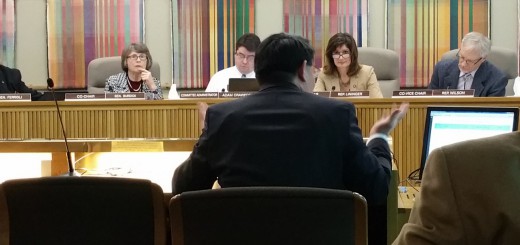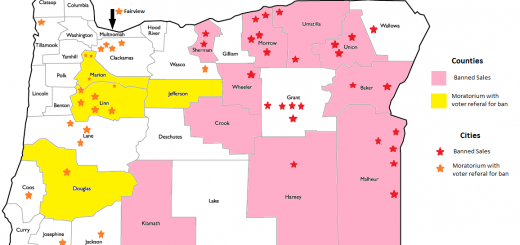This past week consisted of a lot of bills swiftly moving through the legislature. I’m going to try to quickly summarize what happened this week, with only days remaining in this Session and legalization’s effective date only a few short days away.
On Tuesday morning, June 23, 2015 the M91 Committee swiftly pushed through SB 844, with provisions to convene a research task force to identify obstacles to research on medical use and public safety (-36 amendment), as well as provisions related to expunction of convictions for certain marijuana crimes (-43 amendment) and provisions that would prohibit transplant facilities from denying recipients solely based on marijuana use as well as allowing hospice and palliative care organizations to be designated as an additional caregiver for patients at their facilities (-46 amendment). Senator Beyer was excused from the vote, and the remainder of the 9 members of the M91 Committee voted in support.
- Video of 8:30am M91 Committee Meeting
- Current Status of SB 844 (Most recently referred to Joint Committee on Ways and Means)
The M91 Committee recessed until 4pm to wait for the paperwork on HB 2041, which addressed moving the point of taxation to the retail point-of-sale. The rate of 17% was determined as a lower rate than the tonnage tax proposed under M91 would have been, but with the potential to earn the state more revenue by acquiring a larger share of those purchasing from the black market due to the reduced price for consumers. After adopting the -10 amendment, which clarified that tax money from early start also goes to the same place as later tax collections for retail sales, the bill was adopted and moved to the House Floor with Senator Beyer excused and the remaining 9 members of the M91 Committee in support.
Then a public hearing was held on SB 460, which proposed a few options for an early start of recreational marijuana out of existing licensed medical marijuana dispensaries. The early start provisions would allow adults to purchase up to one quarter ounce of marijuana and/or up to four immature marijuana plants or seeds; no other products will be allowed to be sold to adults from dispensaries if this bill passes. Various industry lobbyists testified that the dispensaries were ready and willing to sell to adults, with the Legislature’s support. While a few lobbyists tossed around ideas of allowing early sales of other products, they all shared the common view that public education, labeling, and testing would all need some work for early sales of other products.
On Wednesday, June 24, 2015, the House Floor had the third reading of HB 3400. Rep. Lininger and Rep. Olson carried the bill. Lininger summarized the provisions of the bill and some of the rationale behind the various points. Olson then discussed some of the provisions related to enforcing the bill, specifically highlighting Sec 25, which provides for minor in possession by consumption, a tool he said teachers and juvenile counselors appreciated. Rep. Frederick spoke about the reduction in criminal penalties found in the bill along with the expunction provisions. Rep Buckley spoke about frustrations with the process of getting a bill passed, and the wasted time surrounding the local opt-out impasse. Rep Helm spoke about the reasonable regulation authority granted to local communities, and that local officials should not use their regulatory power to effectively ban licensed activity outside the processes granted for opt-ing out. Rep. Clem spoke about his distaste with comparing marijuana to food and other crops, claiming that it was still an illegal drug and he wasn’t sure how he would vote. Lininger closed by stating that one criteria for licensees was to submit land-use compatibility statements to ensure licensees were good neighbors. The bill passed the Floor with 52 “Aye” votes, 4 “Nay” votes and 4 “Excused”. (Rep Clem voted in support).
- Watch video of the third reading on the House Floor of HB 3400: 6/24/15 House Floor Vote (Click on “HB 3400” to navigate straight to the portion dealing with this bill)
- Current Status of HB 3400
On Thursday, June 25, 2015, the M91 Committee held a Public Hearing on Senate Joint Memorial 12, to urge Congress to find solutions to banking concerns surrounding marijuana businesses and to declassify marijuana from the Controlled Substances Act.
Credit union and banking lobbyists both testified in support of SJM 12, along with Noah Stokes from the Oregon Cannabis PAC. Senator Ferrioli closed the hearing by stating that the State could take cash from marijuana businesses for marijuana taxes and licenses and income taxes, and deposit that money into the bank without concern, but that the citizens were subject to different regulations that prevented them from using the bank, where financial tracking would most effectively occur for compliance with the Cole Memo. The vote was postponed until the end of the meeting, when more members of the Committee would be present, and SJM passed unanimously to the Floor with a “do-pass” recommendation.
A public hearing was also held for SB 460 to consider the -2 (immediate sales of marijuana from medical dispensaries to adults), -7 (Oct 1 sales to adults from dispensaries) and -9 (Oct 1 sales to adults from dispensaries with the ability for OHA to craft rules) amendments. Sam Chapman testified that on July 1, there would be 100,000 cardholders and caregivers who would be able to purchase from dispensaries and that a large number (40%) of the cardholders are on some form of low-income assistance. This could create incentive for “shoulder-tapping” where non-carded adults have their carded friends purchase marijuana from dispensaries. Others testified similarly - that the industry was ready with necessary tracking and regulations and that there was sufficient supply illustrated by the number of vendors dispensaries had to currently turn away.
While a few members favored an earlier start of July 1 (-2 amendment) or Aug 1 (-5 amendment), they agreed to push forward with the Oct 1 early sales date (-9 amendment) out of fear that if they pushed for too early, it may not have the necessary support to pass in both chambers and then there wouldn’t be any sales until late 2016 when OLCC stores are up and running. After adopting the dash 9 amendment, SB 460 was passed to the House Floor with a “do-pass” recommendation.
A few short hours later, HB 2041 was heard on the House Floor. Lininger explained that HB 2041 moves the tax to the point of retail sale and imposes a 17% tax on retail sales (but not on medical sales from dispensaries). It also imposes a 25% tax on any early sales from medical dispensaries to adults and allows localities to impose a 3% tax if they do not ban any licensed marijuana activity. Rep Wilson explained that the tonnage tax originally imposed by M91 was “unwieldly and likely to result in market imbalance” and that the rate proposed by HB 2041 was actually a lower tax rate that would be easier to implement and more efficient. He also noted that the collection of the tax was transferred from OLCC to the Department of Revenue and that retailers would be allowed to retain 2% of taxes collected to cover the costs of collection.
Rep Olson questioned if patients would be required to pay tax if they purchased marijuana at an adult use, OLCC licensed outlet. Lininger explained that patients would be tax-free at medical dispensaries but that all purchases at OLCC licensed stores would include tax. She noted that Prozanski had likened this to a convenience store; that if patients were going to purchase from an adult use store instead of the medical dispensary, the tax was the convenience fee for doing so. Olson said he was supporting the bill and urged an “Aye” vote. The final vote was 45 “Ayes” and 14 “Nays” with 2 excused votes.
- Watch video of the third reading on the House Floor of HB 2041: 6/25/15 House Floor Vote (Click on “HB 2041” to navigate straight to the portion dealing with this bill)
- Current Status of HB 2041






